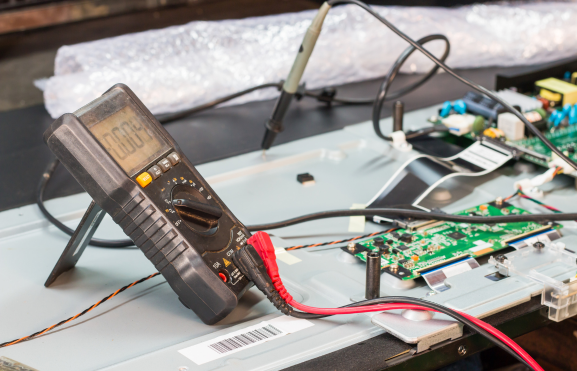Introduction
Launching an app successfully requires more than just a great idea and development skills—it demands thorough testing to ensure a seamless experience for users. Whether you’re working with a team of developers or outsourcing to the best app development company in Hyderabad, it’s essential to test your app rigorously before launch. Skipping this step can lead to costly post-launch issues, poor user feedback, and a tarnished reputation. In this blog, we’ll cover the most important tips for testing your app to ensure it is user-friendly, bug-free, and ready for the market.


The Importance of App Testing
App testing is a critical phase that validates the functionality, usability, performance, and security of your application. Even if you’ve worked with the best app development company in Hyderabad, an untested or poorly tested app may result in bugs, crashes, and a frustrating user experience. By carefully testing your app, you can improve its reliability, enhance its usability, and gain the trust of your users.
A well-tested app is also more likely to receive positive reviews and rank higher in app stores, which can dramatically increase downloads and retention rates. Testing early and often is the best way to prevent expensive last-minute fixes that could delay your launch or damage your brand’s reputation. Whether you are developing the app in-house or relying on the best app development services in Hyderabad, testing should never be neglected.
Key Types of App Testing
Testing encompasses multiple approaches, each aimed at verifying a different aspect of your app. Below, we’ll explore the most crucial types of testing that should be done before your app is released.
Functional Testing
Functional testing ensures that every feature in the app works as intended. This includes checking navigation, user inputs, data processing, and API integrations. Even if you’ve partnered with one of the top app development companies in Hyderabad, it’s essential to simulate how real users will interact with the app. Testing every possible user journey, including logging in, making purchases, and interacting with forms, will help detect any issues in the app’s core functionalities.

For instance, if your app involves payment processing, functional testing should cover scenarios such as incomplete transactions, failed payments, and incorrect totals. By catching these issues early, you can fix them before users encounter problems post-launch.

Performance Testing
Performance testing evaluates your app’s speed, responsiveness, and stability under different conditions. This step ensures that your app can handle high traffic loads without crashing, especially if you expect a large number of users after launch. By conducting both load and stress tests, you’ll ensure the app can manage traffic spikes.
No matter how strong the development team is, performance issues can arise. That’s why even the best app development services in Hyderabad emphasize the importance of performance testing. It includes testing how the app responds to different network conditions and device capabilities, such as slow internet speeds, switching between Wi-Fi and mobile data, or operating with low battery levels.
Usability Testing
Usability testing focuses on the overall user experience, ensuring that the app’s design is intuitive and easy to navigate. Even if your app has powerful features, poor usability can drive users away. Work with a diverse set of users to test how they interact with the app’s interface.

For example, testers should assess whether the menus are easy to find, buttons are large enough to tap, and the app’s overall flow makes sense to users. If the app is difficult to navigate, even if it was developed by the best app development company in Hyderabad, users are more likely to uninstall it. Gathering usability feedback allows you to make design improvements before the app hits the market.

Compatibility Testing
Today’s users access apps across a variety of devices, platforms, and operating systems. Compatibility testing ensures that your app performs well across different environments, including Android and iOS devices, tablets, and different screen sizes. Even if you’re using the top app development companies in Hyderabad for your project, compatibility testing helps ensure your app adapts well to different devices.
For mobile apps, this means ensuring the user interface (UI) looks good on different screen sizes and that the app functions smoothly regardless of the device being used. Your testing should also cover different operating systems and software versions to make sure the app is accessible to the widest range of users.
Security Testing
Security testing has become increasingly important, especially as apps collect sensitive data like user credentials, personal information, and payment details. Any vulnerabilities in your app could expose users to cyber threats and tarnish your app’s reputation. During security testing, check for weak encryption, data leaks, and authentication flaws.

Security concerns are especially critical for businesses working with financial data or personal information. Even the best app development services in Hyderabad include robust security testing protocols to ensure the app complies with industry standards. Tools like penetration testing can help identify vulnerabilities, ensuring your app is safe and secure for users.
Best Practices for App Testing
To ensure that your app is in top shape before launch, follow these best practices for a structured and comprehensive testing process.

Begin Testing Early
Starting your app testing early in the development cycle allows you to detect and address issues before they become harder to fix. This approach, known as shift-left testing, reduces the risk of discovering critical bugs at the last minute. Whether you are developing in-house or working with the best app development company in Hyderabad, starting early will save time and reduce costs.
Testing early ensures that as the app evolves, new features are constantly checked for bugs or regressions. The earlier you identify issues, the easier and more cost-effective it is to fix them.
Implement Automated Testing
Automated testing is ideal for repetitive tasks and helps improve testing efficiency. Automated testing tools are used to handle frequent tests like regression and performance checks. While manual testing is still essential for usability and exploratory testing, automation reduces the time spent on routine tests.

Automated testing also enables quicker iterations and more frequent testing. For example, with the best app development services in Hyderabad, automation tools can run hundreds of test cases in a fraction of the time it would take manually, allowing the team to focus on higher-level assessments.

Test Across Real Devices
While simulators are useful for initial testing, real devices offer a more accurate representation of how users will interact with the app. Testing on physical devices helps assess how the app functions under real-world conditions such as fluctuating network speeds, limited storage, and interruptions like phone calls or notifications.
Working with one of the top app development companies in Hyderabad means having access to a broad range of devices for testing. This ensures your app is compatible with all types of phones and tablets, providing the best user experience possible.
Focus on Real-World Scenarios
Testing your app under real-world conditions is crucial. This includes simulating situations like switching networks (Wi-Fi to 4G), receiving notifications, or even low battery levels. Real-world testing helps ensure the app can handle different circumstances without crashing or causing a poor user experience.

For example, will your app save progress if a user answers a call mid-session? These are the kinds of scenarios that need testing to ensure reliability. The best app development company in Hyderabad would factor in real-world testing, making sure your app is ready to handle various conditions users will encounter.
Pre-Launch Checklist for App Testing
Before launching your app, run through this checklist to ensure it’s fully prepared for release.

Beta Testing
Beta testing is the final phase before launching your app. By releasing the app to a select group of beta users, you gather valuable insights on how the app performs in real-world conditions. This feedback can help you fix any last-minute bugs and optimize the user experience.
When working with the best app development services in Hyderabad, beta testing is often a crucial step to fine-tune the app before it hits the market.
Track Crashes
Using tools like Crashlytics or Sentry helps monitor crashes in real-time. These tools allow you to gather detailed data on what causes the crashes, making it easier to troubleshoot and resolve issues. Keeping track of crashes can help ensure a smooth user experience after launch.


Ensure Compliance with App Store Guidelines
Ensure your app complies with the app store guidelines for Google Play and the Apple App Store. Non-compliance can result in delays or rejection, affecting your launch timeline.
Conclusion
Testing your app before launch is vital to its success. From functional testing to performance and security assessments, a thorough testing process ensures that your app is user-friendly, reliable, and secure. Whether you’re developing in-house or working with the best app development company in Hyderabad, the key to a successful launch lies in early and frequent testing. With a well-tested app, you can expect fewer post-launch issues, positive reviews, and higher user retention. Investing in proper testing now will pay off significantly in the long run.
FAQs:
Why is an app testing important before launch?
App testing is crucial before launch to ensure your app functions properly, offers a smooth user experience, and is free from bugs or security vulnerabilities. Thorough testing helps detect and fix issues early, reducing the likelihood of crashes, poor user feedback, or costly post-launch fixes. It also boosts your app’s credibility and improves its ranking in app stores, which can drive higher downloads and retention rates.
What are the key types of testing required for app development?
The key types of testing for app development include:
Functional Testing: Ensures the app’s features work as expected.
Performance Testing: Evaluate the app’s responsiveness under different conditions.
Usability Testing: Focuses on the app’s user-friendliness and interface design.
Compatibility Testing: Ensures the app performs across various devices and platforms.
Security Testing: Identifies and resolves any security vulnerabilities.
How early should I begin testing my app?
You should start testing your app as early as possible in the development process, a practice known as shift-left testing. Early testing allows you to identify and address bugs or performance issues before they escalate, ensuring a smoother development process and fewer last-minute problems before launch. Working with the best app development company in Hyderabad can help ensure your app undergoes early and frequent testing.
What is the role of automated testing in app development?
Automated testing is ideal for performing repetitive tasks such as regression testing and performance checks. It speeds up the testing process, allowing developers to focus on more complex aspects like usability and security testing. Automated tools run multiple test cases simultaneously, ensuring that your app is bug-free and optimized for launch.
How can real-world testing improve my app’s performance?
Real-world testing helps ensure your app performs well under everyday conditions, such as fluctuating network connections, low battery levels, or interrupted sessions. Testing on physical devices, rather than simulators, allows you to see how your app handles real-world scenarios, ensuring a better user experience and higher performance reliability post-launch. Working with one of the top app development companies in Hyderabad can provide access to a range of real devices for accurate testing.



Leave a Reply